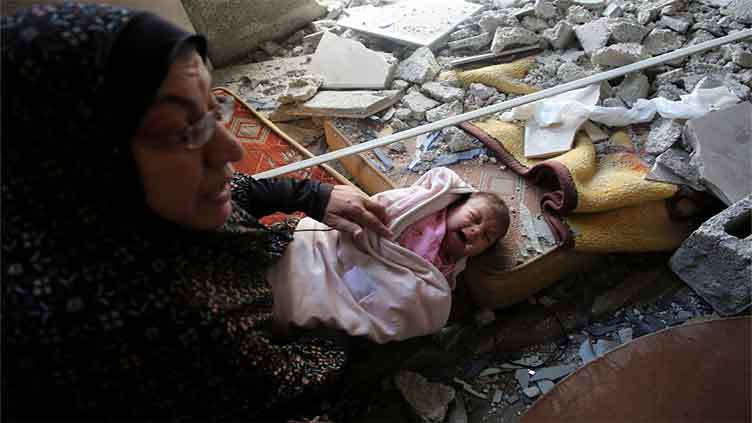Gaza truce or Rafah assault? Netanyahu faces political dilemma

World
Gaza truce or Rafah assault? Netanyahu faces political dilemma
JERUSALEM (Reuters) - Far-right allies of Israeli Prime Minister Benjamin Netanyahu are raising pressure on the embattled leader to reject a new Gaza ceasefire, jeopardising his government's stability if he backs away from an assault on Hamas in Rafah.
Hamas representatives were due in Cairo on Monday as mediators step up efforts toward a ceasefire deal ahead of a threatened Israeli storming of Rafah, an area by the Egyptian border, where around a million Palestinians displaced by Israel's military campaign elsewhere in Gaza are sheltering.
But Israel says four remaining battalions of Palestinian Islamist group Hamas are entrenched there - after over six months of war triggered by Hamas' cross-border strike on Oct. 7 - and that it will attack them after evacuating civilians.
However, if a ceasefire is agreed, the attack plans will be shelved in favour of a "period of sustained calm", according to a source briefed on the talks, during which a few dozen hostages of Hamas will be released in return for Palestinian prisoners.
On Sunday, Israeli Finance Minister Bezalel Smotrich urged Netanyahu not to back away from a ground offensive against Hamas in Rafah, even as the premier is grappling with pressure from international allies to scrap assault plans due to the risk of high civilian casualties and a humanitarian disaster.
But a ceasefire would be a humiliating defeat, Smotrich said in a video he released to the press and addressed to Netanyahu. If it fails to stamp out Hamas, "a government headed by you will have no right to exist," he said.
Smotrich was swiftly followed by police minister Itamar Ben-Gvir, who reposted on X a Jan. 30 remark made during a previous round of ceasefire talks: "Reminder: An irresponsible deal = the government's dissolution."
Netanyahu's office and his conservative Likud party have not issued a response to the ministers' statements. His spokespeople were not immediately available for comment on Monday, which marked the Jewish holiday of Passover.
But Benny Gantz, a centrist former defence minister who joined Netanyahu's emergency war cabinet in October, offered his own rebuke, saying that freeing hostages took precedence over an assault on Rafah.
The rejection of a responsible deal that would secure a hostage release, Gantz said in a statement, would strip the government of any legitimacy - given its Oct. 7 security failure and the clamour in Israel for the return of hostages.
Though his popularity has soared in the polls since joining the war cabinet, Gantz lacks the power to bring down the government because together with Smotrich and Ben-Gvir's parties, Netanyahu controls 64 of parliament's 120 seats.
PROTESTS OVER CONDUCT OF WAR
Ben-Gvir and Smotrich have drawn U.S. ire over anti-Palestinian remarks and policies supporting settlers in the Israeli-occupied West Bank, even before the Gaza war. With their combined 13 Knesset seats, either could dissolve the government.
If that happened, Netanyahu would have to obtain backing from more centrist parties or face an election.
But a vote would pose serious risk for Netanyahu.
Successive polls have attested to his steep loss in popularity over Hamas' Oct. 7 attack - the worst on Jews since the Holocaust and Israel's single deadliest day. His present coalition faces a resounding election defeat, polls suggest.


